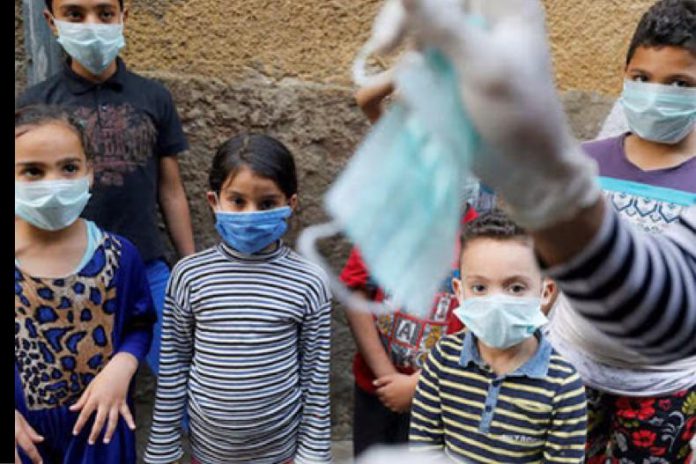Coronavirus pandemic has already entered its fifth month and some experts like WHO believe that there is good chance that it may never go away. In such a situation, the routine medical and health-care services have been hit, vaccinations and immunisations are getting delayed due to choked supply chains. As a result, according to analysis by John Hopkins Bloomberg School of Public Health, additional 6,000 children could die daily from preventable diseases in the course of next six months. The UNICEF, UN’s children agency has warned that this health crisis is “quickly becoming a child rights crisis.”
UNICEF has requested USD 1.6 billion to support its humanitarian response for children impacted by the pandemic. Earlier in late March, the agency has made an appeal for USD 651.6 million. Increase in costs of supplies, shipment and care are cited the reasons for the new figure. This clearly shows how disastrous the socio-economic ramifications of COVID-19 have been on families especially those with limited means.
“Schools are closed, parents are out of work and families are under strain,” UNICEF Executive Director Henrietta Fore said on Tuesday.
“As we reimagine what a post-COVID world would look like, these funds will help us respond to the crisis, recover from its aftermath, and protect children from its knock-on effects.”
The Analysis by John Hopkins Bloomberg School of Public Health
UNICEF said the estimate of 6000 additional children was based on the worst of three scenarios analysing 118 low and middle-income countries:
- Reductions in routine health coverage, and an increase in so-called child wasting: Estimate that an additional 1.2 million deaths could occur in just the next six months
- Maternal deaths: Around 56,700 more maternal deaths could also occur in just six months, in addition to the 144,000 likely deaths across the same group of countries.
- Increase in Child Mortality Rate: Children dying before their fifth birthdays, would represent an increase “for the first time in decades,” Fore said.
“We must not let mothers and children become collateral damage in the fight against the virus. And we must not let decades of progress on reducing preventable child and maternal deaths, be lost”
UNICEF Executive Director Henrietta Fore
Other Highlights of UNICEF analysis:
- High level of stress due to restricted movement and isolation: Some 77 per cent of children under the age of 18 worldwide are living in one of 132 countries with COVID-19 movement restrictions. Its psychosocial impact could make intensify especially for vulnerable youth.
- Increased risk of Sexual and gender based violence: Children living under restricted movement and socio-economic decline are in greater jeopardy of violence and neglect.
- Migrants, Refugees and internally displaced are more exposed to xenophobia and discrimination.
“We have seen what the pandemic is doing to countries with developed health systems and we are concerned about what it would do to countries with weaker systems and fewer available resources”
UNICEF Executive Director Henrietta Fore
Till date, the UNICEF has received USD 215 million to support its pandemic response, and maintains that additional funding strengthen their efforts to build upon already-achieved results.
UNICEF has reached more than 1.67 billion people with COVID-19 prevention and precautionary measures against COVID including hand hygiene. Over 12 million have been provided with critical water, sanitation and hygiene supplies; and nearly 80 million children with distance or home-based learning.
The UN agency has also shipped to 52 countries, more than 6.6 million gloves, 1.3 million surgical masks, 428,000 N95 respirators and 34,500 COVID-19 diagnostic tests, among other items.
Source: PTI
Image Source: Google Images





















